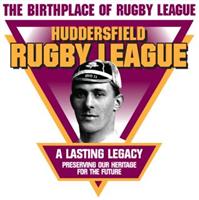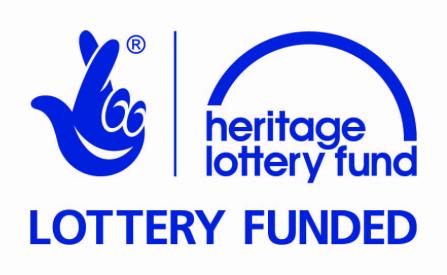Maurice Oldroyd
Player, Coach, Referee, Administrator, and Fan

Maurice at the Underbank Rangers ground on the hillside above Holmfirth
Maurice Oldroyd is one of rugby league's unsung heroes. Player, coach, referee, administrator and fan, Maurice has seen all sides of the game. As an instigator of the British Amateur Rugby League Association (BARLA) and its greatest achievements, he has been a hugely influential power for good.
Born in Huddersfield in 1935, Maurice has tackled a succession of rugby league challenges with determination, patience and integrity. His leadership of the amateur game has been characterised by fairness.
At school Maurice was a scheming scrum half, playing both rugby league and rugby union. He captained the Huddersfield Schoolboys rugby league team and led Hillhouse Secondary School to three consecutive Hoyle Cup wins. When the Hillhouse lads wanted to continue playing together, Maurice founded Old Centralians, which continued until National Service deprived them of players. Maurice then signed for Woodhouse Youth Club, a team Centralians had beaten 135-0 ... "I thought I would try to improve them!'
It was a good grounding. Maurice's school team included, Ian Fiddes, who was son of the Fartown captain Alec and had a rugby union trial for Scotland. A couple of Centralians went on to play professional rugby league, including winger Norman Field who played for Batley and Great Britain.
A regular in the Fartown "hen pen' – behind the goal where school children were allowed in free – Maurice's passion for the game was further fuelled by the arrival of Huddersfield's Australian international trio, Hunter, Cooper and Devery in 1948.
"They were all entertainers. Johnny Hunter would catch the high ball on the run, immediately gaining ground and setting up an attack. His timing was superb. When Pat Devery pulled his hands back a big roar went down the terrace because the ball was going wide to Lionel Cooper, a real powerhouse, and a great try-scorer.'

Lionel Cooper powers down the left wing
With a roguish twinkle, Maurice adds, "Somehow I wangled my way into the Fartown scoreboard. They paid me 5d for putting up the tins and I had a great panoramic view of the game.'
Maurice's two years' National Service was spent in the RAF where he was played rugby union, coached by his Sergeant Major, the Welsh international Dai Rees. Returning to Huddersfield and to rugby league, he played first for Crosland Moor, then for Underbank Rangers. Maurice still feels enormous pride to have represented, and later coached Underbank, the district's oldest surviving amateur club, and the club of all-time greats Harold Wagstaff and Neil Fox.
At the age of 28 Maurice switched to refereeing, knowing full well what to expect: "I don't mind being shouted at. I've a very long fuse.' He became chairman and press officer of the Huddersfield Referee's Society and worked with some of the game's best officials, including Billy Thompson, Mick Beaumont and Clarrie Sutcliffe … "real characters and great referees. Billy was world-class. The Australians even flew him out to referee the very first State of Origin game between New South Wales and Queensland.'
Maurice also moved through the refereeing ranks and in 1973 was selected to referee the RFL's youth team against the Australian Schoolboys. Unfortunately, this coincided with the Huddersfield Amateur League committee, led by Tom Keavney, Jack Clayton and himself, instigating the amateur game's breakaway from an intransigent RFL.
"When the RFL realised that I was involved with the breakaway, they replaced me with Billy Thompson 48 hours before the game. I'd stuck my neck out and got my head chopped off!
"Tom was wheelchair-bound, but a formidable negotiator, Jack worked for the council so he had contacts and knew his way round the bureaucracy, and altogether we were a good team.' The breakaway organisation, BARLA, was formed by an almost unanimous vote of all the amateur leagues at Huddersfield's Greenside Working Men's Club. Maurice's only regret is not organising this meeting at the George Hotel, the birthplace of the game.
"We had one or two powerful allies – Hubert Lockwood from Huddersfield who was chairman of the RFL and Tom Mitchell, the driving force behind Workington's post-war success. On the first RFL vote to accept BARLA, we lost 29-1. Only Tom voted for us. He campaigned for us and 12 months later we won unanimously. It felt as if we were taking on the world, but history shows it was the right thing to do.' Within ten years the amateur game was evolving its impressive pyramid structure, with the formation of the Pennine League.
When BARLA needed a full time officer, Maurice was among a host of applicants. "The others included a retired naval officer who told the panel that he loved the idea of the power. Perhaps they thought, "We'd better settle for Oldroyd then!"
Having tackled the RFL, Maurice's next target was the government after he read that a national dance group had received a grant from the Sports Council. BARLA's key to unlocking public funds proved to be the community of volunteers working right across amateur rugby league.
"The 2012 Olympics Games-makers have had a great deal of praise and rightly so, but volunteering has kept amateur clubs going across all sports for many decades. As a purely amateur body, separate from the RFL, we were well-placed to apply for grants. The breakthrough was a grant for £2000 from the Sports Council to take the amateur international team to France. Other grants snowballed from there. About three or four years later we took our Great Britain team to Australia, New Zealand, Papua New Guinea, Samoa, Tonga and Fiji.'
Moving on to BARLA's next campaign, Maurice recalls, "Rugby Union was a big problem. We wanted to end the rugby union's life-bans on anyone who had played amateur rugby league. We met their big gun, Brigadier Dennis Shuttleworth, in the Hilton at Leeds – we were taking on the establishment. We presented our case, they thought a bit, then the Brigadier said "Maurice, we've heard everything you've said and we can either make a decision or not, and we're pretty damned good at the latter." I couldn't help but smile. Nothing changed in 1973 but we won the battle in the end, in 1986, after thirteen years of letter-writing. We got the Sports Council involved and the rugby union were politely told that if they didn't allow free movement of amateur players, there was no public money! Q.E.D."
A highlight of Maurice's time at BARLA came in 1991 when the Queen opened their new offices in Huddersfield. Now 76, Maurice is a regular at the Huddersfield Senior Giants Supporters' Association and travels monthly to the House of Commons to represent the amateur game on the all-party rugby league group, as he has since 1990. He is also President of the Yorkshire County ARL, having previously served for 22 years, 1978-2000, on the International Rugby League Board.
An encyclopaedia of Huddersfield memories, he names the Championship Final of 1949, played before 75,000 at Maine Road, as a highlight. "The referee, Mr Smith from Barrow, had fallen out with the RFL and didn't turn up. They promoted one of the touch judges, Matt Coates, and found another touch judge in the ground. It shows that this sort of thing can happen at any level. '
The 1953 Challenge Cup Final at Wembley also stands out. "Peter Ramsden, whom I played against at school, was man-of-the-match on his 19th birthday at Wembley in 1953. It was a great game with good skills and hard tackling. Johnny Hunter was stretchered off, flattened by Llewellyn. There were no subs then and if you were a man down for any period you'd had it. When Hunter charged back on to the field a thunderous roar went up."
On changes in the game, he comments, "The game is faster today. Nothing stands still. People develop, skills and fitness have improved in all sports, but particularly in Super League as the players are now full time. But you have to judge players against others of their time. I would prefer contested scums, but uncontested ones are safer.
"There are more middle class people at the matches today because the working classes have more leisure time options, and it costs more to go to the match. More women go to the matches these days.
"The youngsters have many more interests today, so they fill their time with various hobbies, but when they're at the game they're just as passionate as we were. When we were young it was sport, sport and more sport. It was natural because what else was there to do? Sport was our enjoyment.
"There is more television coverage today because of Sky. I haven't got Sky, but when I go round to see people the rugby league always seems to be on! The replays are tremendous but I prefer the passion of seeing the game live.
Watching the Giants, Maurice still experiences the weekly highs and lows of the genuine fan. He holds Chairman Ken Davy in high esteem for the time and finance he has committed not just to the Giants, but to sport in Huddersfield. "It is no exaggeration to say that Ken has been the saviour of the club, and on more than one occasion. Sport in Huddersfield would not be the same without him."
"Rugby league has given me a lifetime of pleasure. It has been an honour to serve the amateur game and hopefully I've given a little bit back. I don't think there's another sport you can play with so much passion. It's the greatest game in the world."





